I have one, every member of the C-Store team has one, even my 75-year-old father who can’t work the TV remote control has one. According to Ofcom research, 92% of UK adults now own or use a mobile phone.
Mobile phones may be 40 years old, but there are no signs that the public are falling out of love with them, and their use is becoming increasingly sophisticated. Ofcom reports that 60.4% of UK adults own smartphones with app capability, providing retailers with a vital tool in promoting their business directly to the customers who live or shop in their area.
Simply Fresh director Kash Khera has answered the call of the mobile revolution. He recently trialled the BeepTreat app at the Sutton Coldfield Simply Fresh store. Customers sign up to the app and can then scan special QR codes in store, giving them the opportunity to earn treats such as a free cup of coffee. Their activity is then linked into their Facebook and Twitter feeds, giving Simply Fresh a valuable publicity boost.
Kash says retailers need to get on board with this form of digital engagement. “It’s a vital tool for independents to help increase awareness of the business and inform customers of promotions available,” he says. “Using an app such as BeepTreat improves engagement with customers and helps promote the business. Retailers are using a customer’s smartphone to engage with the community.”
Sheffield retailer Jai Singh is also a fan of apps. Although Premier has an app, Jai wanted to create a Singh’s Premier store app to give it an individual feel and allow him to offer his own deals. It’s currently in development and Jai believes it will go down well with his customers. “We want to create a point of difference with our app,” he says. “It would be very easy to just use the nationwide app, but what’s the point in that? Smartphone technology is the way forward for engaging with customers, but it’s pointless if you can’t engage with them locally, or are talking about stores that are nowhere near them.”
Brand awareness
If having your own app or mobile site is a step too soon, there is an opportunity to dip your toe into the digital waters through the Shop Scan Save scheme. Available to PayPoint retail agents, the scheme runs offers on top brands including Arla, Bacardi, Bavaria Beer, Danone, Heinz and P&G that are sent directly to customers’ phones.
Using the in-app store locator, shoppers can visit their nearest participating retailer and use the single-scan technology to redeem any number of offers simply by scanning a barcode ID in the app. The Shop Scan Save app has already been downloaded by more than 40,000 consumers.
Claes Kockum, commercial director of Mobilize Systems, the company that created Shop Scan Save, says the scheme is perfect for independent retailers. “Shop Scan Save was created to support the consumer and the sale of branded essential items across the convenience estate,” he says. “Consumer demand for smartphones is creating new opportunities within mobile marketing, showing how brands can use smartphones in new ways to engage with and reward existing and new consumers.”
As well as the app, Jai is working on a mobile site that will carry content that sets it apart from the app as well as appealing to any smartphone users who may not want to download apps. “As independent retailers we need to be targeting the customers in our area and offering promotions that will suit them, so it’s better that we have something bespoke for our store and our community,” he says. “The mobile site will cover more events taking place at the store and have a more local community feel.”
Jai says that smartphones are the key to reaching customers and increasing basket spend. “So many people have them and use them in-store that retailers need to have a mobile presence that can encourage customers to shop more often with you, or make them more aware of promotions that are taking place.”
Jai believes this route will also improve his knowledge of customers. “Through the app we want to create QR codes for certain products so that we can offer an app-only price to customers using their smartphone,” he says. “It’s also the plan to encourage customers to sign in so we can collect data on purchasing habits that we can then use to tailor our offering better to suit them.”
Jack Shorney of Bradium Marketing, developer of the BeepTreat app, says that independent retailers have no choice but to get involved with smartphone engagement. “All of their competitors are doing it, either to canvass opinion or for promotions, so it’s vital that independent retailers get on board with this,” he says. “The best thing about it is that it creates a level playing field for all those who use it. Engagement from a multiple can’t be that much bigger than that from an independent retailer so there’s no clear advantage for one store.”
Although the multiples may have a bigger budget at their disposal to roll out an app or mobile site, Shorney says that smartphone engagement is a cost-effective method of reaching customers. “For three months, it can be cheaper than one ad in a local newspaper, and with the Facebook and Twitter interaction it can have a much wider reach,” he says. “Plus you get all of the demographics data from customers who are using the app and you can then tailor your range to suit your customer base.”
Spar recently trialled its own app that offered retailers the opportunity to tailor promotions to their customers. Peter Ewing, manager of Spar North Hill in Plymouth, Devon, who was one of the participating retailers, says that it was a great way to target the younger generation.
“We’re quite close to a university so there are a lot of young students with smartphones, who have the technological know-how to download the app and make best use of it,” he explains.
As well as publicising national promotions, the Spar app offered retailers the chance to choose their own deals. Peter says this gave him a big point of difference. “It helps to have something that other retailers haven’t, even if they’re also Spar retailers, and the idea of promoting something locally is a big plus.”
Spar is now assessing results of the trial and hopes to roll out the app nationally in the near future.
Apps aren’t just ideal for promoting product deals, though. Shorney says they also offer retailers the chance to create loyalty schemes, operated through smartphones rather than the traditional stamps on cards. “It’s always been something that the sector has had difficulty with as it would be tricky to get everyone to agree on the same points and rewards systems, but we’re working on a way that a retailer can dictate their own rewards through an app, which would be easier than using a card scheme,” he says.
But does this level of engagement equate to extra sales for retailers? Shorney says that customers at Simply Fresh in Sutton Coldfield who have downloaded the Beep Treat app visit the store two to three times more per week for food to go; 60% of customers surveyed that had downloaded the app use the store every day to buy a hot beverage due to the hot drinks loyalty incentive.
Kash adds that customers at Sutton Coldfield have responded to it well. “Customers want to engage with businesses and are keen to take advantage of promotions available, and this is a good way of doing it,” he says. “It has increased customer loyalty, which is essential given the current climate, and improved engagement between the retailer and shoppers.”
Of course, there’s no point in having the ability to reach customers through their smartphone if they don’t know about it. According to recent Google Shopper Marketing Council research, 84% of shoppers who have a smartphone use it while in a store. So if your customers are getting their phone out while shopping, have plenty of POS material available inviting them to link with your store.
“Our website address is all over the store so there’s no danger of customers missing our online presence,” explains Jai. “But as soon as the app is up and running, we’ll put additional POS materials about the store so customers are aware of it, and QR codes on shelves that they can scan with their smartphone.”
Peter says that any retailer considering introducing smartphone initiatives should make sure that the system is easy to sign up to. “You don’t want a massive sign-up form that takes ages to fill in, or something where you need to sign in every time you use it,” he warns. “It needs to be easily accessed by customers. It’s also important to ensure that it’s suitable for your area. While we have plenty of young customers near us, not every store has the same demographic and it may not have good results.”
Jai agrees that doing your research before embarking on a project like this is vital. As well as asking customers what they would like to see on an app, he is utilising Facebook to garner opinion. “I put a few multiple choice questions on a Facebook post to see what customers wanted from the app,” he says. “Promotions was a popular option, but the ability to create shopping lists for the store was another that customers responded to. It would be very easy to create something I think customers want, but then find it’s of no use to them, so this information is valuable.
“It’s also important to have a system that’s easy to manage and update yourself. You want to be able to change the offers when you want to, rather than relying on someone else to do it, as that’s the big advantage an independent retailer has over a multiple.”






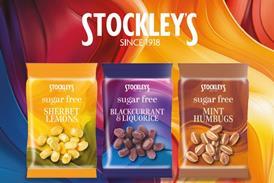
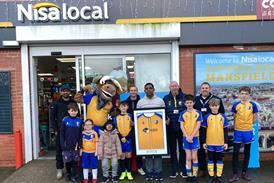








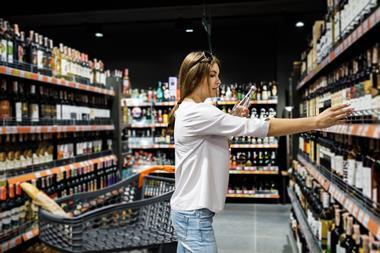
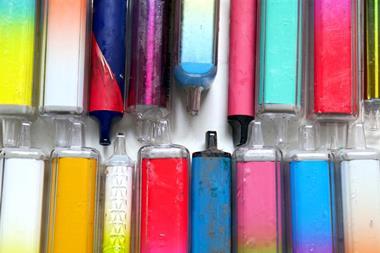

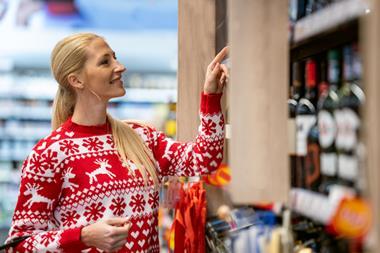
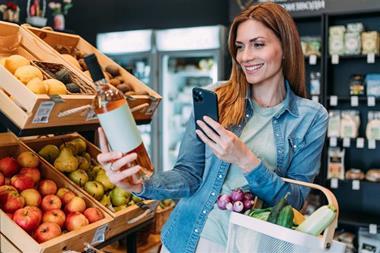
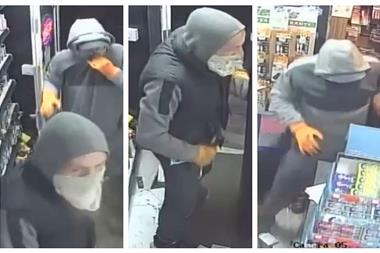
No comments yet